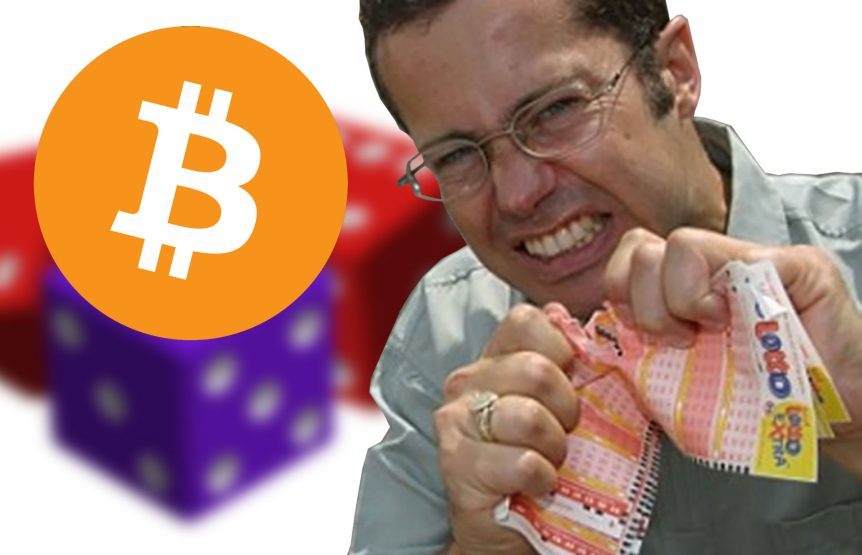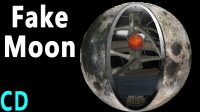They say ignorance is bliss, and maybe it is compared to knowing that you’ve missed out on millions or even billions of dollars because of bad decisions or bad advice or just bad luck that turns the dream of riches in to the cold awakening of what could have been.
In this video we look at 7 people that missed out on a fortune.
1 James Howells lost bitcoins
As the ole timers would say theres gold in them there hills, but in this case it’s more like the local refuse dump.
Back in 2009 just after Bitcoins had been created, British IT worker James Howells jumped on the bitcoin mining bandwagon when it was still relatively easy to find them and set his dell laptop to work digging for Bitcoins.
After about a week of data mining, he stopped due to his girlfriend complaining about the noise the laptop was making. By then he had found 7500 Bitcoins but back then that was worth maybe $50 and no one knew what was going to happen to the value of the currency over the next few years. At its peak in Nov 2013 those 7500 Bitcoins were worth $7.3M and even today they are still worth around $4.3M.
In 2010 the Laptop broke down after he split lemonade on it. James striped it down for spares and put the hard drive containing the digital bitcoin wallet in a drawer and basically forgot about it for 3 years and got on with his life.
In 2013, James was having a clear out and one of the items he decided to throw out was the hard drive from the dell laptop. At the time he said had a little voice in the back of his head was saying that was not a good idea but he continued to throw it away.
He only realized his error a few months later when he reconnected with the bitcoin world but by then the hard drive which is the size of a credit card and ¼ inch thick, was long gone in the local landfill dump under 4-5 feet rubbish in an area the size of a football pitch and presumably it’s still there.
James has looked in to retrieving it but the cost of doing so with no guarantee of finding it was too prohibitive. So somewhere in Docksway landfill site near Newport, Wales there is a pot of digital gold at the end of a rainbow of rubbish.
2 Nolan Bushnell could have owned one-third of Apple
Life is a game, that what Nolan Bushnell the founder of Atari, the games console maker in the 1970’s said about business, if you lose a game of chess you don’t go and jump off a bridge, you just reset the pieces and start again.
And he should know, he has made some big mistakes along the way and admits that when he was 35, he was insufferable. He said “I thought I could do no wrong and I got really sloppy”
Wise and prophetic advice from the man that could have owned a third of apple which is now valued at over $540 billion for just $50,000.
In the early days of Atari, Ron Wayne, we’ll hear more about him later, Steve Jobs and Steve Wozniak had been involved in developing the Atari arcade game “breakout”. Later using parts borrowed from Atari, Jobs and wozniak created and marketed their own home computer, Jobs offered the design to Bushnell but Atari wasn’t interested in making computers at the time so, Bushnell turned it down.
In 1976, Jobs again approached Bushnell but this time for money to fund the fledging Apple computer company. He was asking for $50,000 in exchange for 1/3 of the company. Bushnell said later about it. “I was so smart, I said no, and It’s kind of fun to think about that, when I’m not crying about it.”
3 Julian Batt game show mus-pronunciation.
Who would have thought a simple mispronunciation would cost you a $1 million but that what happened to Wheel of fortune contestant Julian Batt who turned the game show in to a wheel of misfortune.
Julian was competing in the popular TV game show when he had a golden opportunity to win $1 million. He correctly guessed all the letters to the answer which was “The Mythological Hero Achilles” but when he read out the answer to claim the prize he said “The Mythological Hero A-chilles”, now whether that was being a bit to pedantic is up for question but the rules state that contestants must use ‘the generally accepted pronunciation’ when trying to solve a puzzle.
He also lost out on winning a car but ended up winning the overall game and $11,700 which is better that a poke in the eye with a sharp stick but also $988,300 less than he could have won.
4 Ronald Wayne could be worth $40 billion today
Not a lot of people know that Ronald Wayne was the third founder of Apple on the 1st April 1976 along with Steve Jobs and Steve Wozniak but sold his 10% share for $800 just 12 days later and accepted a further $1500 to forfeit any future claims.
Of course everyone has 20/20 vision in hindsight but this a bit like winning the biggest lottery in history and losing the ticket. That 10% share, even allowing for the share dilution would be worth today between $20-30 billion.
Ron had met the two Steve’s when he was working for Atari. He was an engineer and worked in the slot machine business and became good friends and a kind of mentor to them. Before starting apple, Jobs said that he had access to $50,000 and asked in Ronald would interested in getting back in to the slot machine business. Ron replied that it would be quickest way to lose $50,000 and jobs never mentioned it again.
However, Ron was remembered when they were setting up apple. He drew up the original contract that laid out the share arrangement, with Jobs and Wozniak getting 45% each and Ron 10%. Ron also created the first Apple logo, with Newton sitting under a tree with an apple above his head.
Ronald was 40 at the time of the start of Apple and the two Steve’s were in their 20’s. Ron said “I felt out of my depth, they were whirlwinds, it was like holding a tiger by the tail, if I had stayed with Apple I’d have probably wound up the richest man in the cemetery”
After Apple, Ron went to work for a small engineering company but kept in contact with the two Steve’s.
In 2000 after he had attended the launch of the new Mac at the personal request of Steve Jobs he saw a wanted ad for autographs and he remembered the original contract he still had which was signed by all three of the Apple founders. Thinking that he didn’t need it anymore he sold it for $500. Eleven years later in 2011, that original contract sold for $1.6M. Ron said about it later, “In that, you have the story of my life”
Ron is magnanimous about the opportunities that have past him by and said “I didn’t want to waste my tomorrows bemoaning my yesterdays, I handle it by going on to the next thing. That’s all any of us can do.”
5 Missing out on a £35 Million lottery win
OK, so you bought your lottery ticket on-line, they have all your details in your account and you’ll never lose the paper ticket so when your winning numbers come up on a £35M about $50M lottery jackpot your guaranteed the money…aren’t you…. Well is unless you didn’t actually buy the ticket in the first place.
That’s what happened to David and Edwina Nylan when they played the Christmas Euro Millions lottery in Dec 2015.
They had been regular lottery players for years and bought their tickets on-line but the transaction for this purchase didn’t go through because they only had 60p in the account and needed at least £2 to play, so they topped up the account with more money and tried again.
Edwina said that David used an app on his iPhone to generate the numbers 1,2,4,19,28 & 41 and that when they tried again, they got the confirmation that the transaction had gone through.
When the results came up and they realized they had the winning numbers, they checked on-line but there was nothing there. They then rang the lottery operator Camelot, who confirmed that they did indeed attempt to buy a ticket with the numbers but the transaction did not go through because they only had 60p in the account.
The lottery operator said that the system had recorded several attempts to buy the ticket but no record of the topping up of the account and as such the ticket was not purchased in time due to insufficient funds and they would have received confirmation of the topping up of the account. Only tickets which have been successfully purchased can be entered in the draw.
David and Edwina say that they don’t remember the confirmation of the top up because the closing time for the draw was just 30 minutes away and they were in a rush because of Christmas but they did say that they would be contesting Camelot to get the prize.
6 Joe Green took his dad’s advice and said no to Facebook
Taking advice from people you trust can be tricky, especially if it turns out to be bad advice. So when Joe Green’s father told him not to team up with a certain Mark Zuckerberg again after nearly being expelled from Harvard because of a previous project with him, he thought his dad could see something he couldn’t.
But what nobody saw was that the new start-up which was called “Facebook” would become a multi-billion-dollar social media phenomenon.
It started in 2003 when he was an undergraduate at Harvard University, when Green helped Zuckerberg create a website called Facemash which was a sort of on-line Hot or Not game.
Facemash used the photos hacked by Zuckerberg from the online Facebooks of 9 university houses, it placed two of them side by side and asked the user to choose the hotter person.
This prototype had many features of what later would become facebook.com.
However, the site only lasted a few days before it was shut down by the executives of Harvard with Green and Zuckerberg facing charges of violating copyright, breaching security and infringing the privacy of the people’s photos that were used, though the charges were all later dropped.
A few months later and After this brush with the Harvard authorities and very nearly being expelled, Zuckerberg asked Green if he would drop out of University to help him build the Facebook site with the offer of shares as part payment, he sort the advice of his father who was a professor and didn’t want to see his son drop out of university and he advised Joe not to get involved.
If he had ignored his father’s advice and stayed with Zuckerberg and Facebook though, his share of the business would now be worth around $10 billion.
Joe said “Zuckerberg likes to make fun of my dad for this, but we’re still good friends.”
7 Martyn and Kay Tott lottery lost ticket
It must rank as one of the worst nightmares to many, but buying a winning lottery ticket and then losing it is exactly what happened to Martyn and Kay Tott back in 2001 and it also sparked a debate over corporate greed as much as the lost ticket itself.
The couple became aware of an unclaimed lottery ticket that had been bought in their home town of Watford, so they checked the number and, yes they had the winning numbers, the winnings were worth £3 million or about $4.2M but they couldn’t find the ticket. They turned their apartment upside down, checked old coats, rubbish bags, draws, everything they could think of but it was not there
One thing they did have in their favour over the other 115 false claimants to the prize was that they could say were the ticket was bought and the exact time of purchase.
They also could prove that they had been using the same numbers of 6, 7, 11, 23, 32 and 44 for 5 weeks before, all of which was confirmed by Camelot the lottery operator.
The problem they had was is that there is a 30 day lost ticket time limit rule that’s states lost tickets must be reported within 30 days of purchase but because they had not checked the results they didn’t know about the win or the lost ticket until almost 6 months later when the unclaimed prize was announced.
Camelot investigated the case for 7 weeks and concluded that they were genuine and even though they raised the claim to the national lottery commission, both the commission and Camelot said that they couldn’t make an exception on the 30 day lost ticket rule as it would then set a precedent and therefore they could not claim the prize. The couple received a lot of national support in the press and by other lottery winners and celebrities but to no avail and they never did get the money.
The £3 million they would have won was given to good causes instead.



